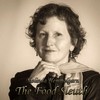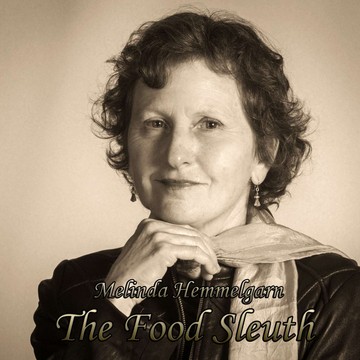

Food Sleuth Radio
Melinda Hemmelgarn
Dietitian Melinda Hemmelgarn helps listeners “think beyond their plates,” connect the dots between food, health and agriculture, and find food truth.
Episodes
Mentioned books

Aug 4, 2023 • 28min
Ben Feldman, Policy Director, Farmers Market Coalition
Did you know that the number of farmers markets has grown from 1,755 in 1994 to almost 9,000 markets in 2019? Join Food Sleuth Radio host and Registered Dietitian, Melinda Hemmelgarn, for her interview with Ben Feldman, Policy Director for the Farmers Market Coalition, a national non-profit with a mission to strengthen farmers markets for the benefit of farmers, consumers, and communities. Feldman discusses the benefits of farmers’ markets, how the Farm Bill can support farmers’ markets, and why SNAP benefits present a challenge to markets. Note: August 6th-12th is National Farmers’ Market Week.Related website: https://farmersmarketcoalition.org/

Jul 28, 2023 • 28min
Kristina Marusic, author of A New War on Cancer: The Unlikely Heroes Revolutionizing Prevention.
Did you know that only seven to nine percent of global cancer funding goes towards prevention? Join Food Sleuth Radio host and Registered Dietitian, Melinda Hemmelgarn, for her interview with Kristina Marusic, MFA, journalist with Environmental Health News (www.ehn.org), and author of A New War on Cancer: The Unlikely Heroes Revolutionizing Prevention (Island Press). Marusic connects human health with our environment, discusses our woefully under-funded efforts in cancer prevention, harmful anti-regulation rhetoric, cultural narratives and the phenomenon of “blind loyalty” to corporations that make us sick. Marusic finds hope in collective, systemic-level solutions and provides resources for action.Related website: www.kristinamarusic.com/https://islandpress.org/books/new-war-cancer

Jul 20, 2023 • 28min
Chris Jones, Ph.D., author of The Swine Republic: Struggles with the Truth about Agriculture and Water Quality.
Did you know that 70 percent of the land in the state of IA is planted in a corn/soy rotation, and that almost none of the decisions driving this current production system were made with the nutritional or caloric needs of human beings in mind? Join Food Sleuth Radio host and Registered Dietitian, Melinda Hemmelgarn, for her interview with Chris Jones, Ph.D., retired research engineer at the U. of IA and author of The Swine Republic: Struggles with the Truth about Agriculture and Water Quality. Jones discusses the water quality sensor network he managed at the U of IA, and the devastating environmental impacts of IA agriculture, which is dominated by corn and soy, corn-based ethanol and 25 million hogs. He explains the benefits of biodiversity, farming to scale, and stopping federal support of corn-based ethanol. Jones says local politics are key to changing policies affecting our environment and health. His book features a collection of blog posts about agriculture, water quality and the forces behind our food, fuel and farming policies.Related website: Ice Cube Press, https://icecubepress.com/2023/04/10/the-swine-republic-2/ Presentation in Fairfield, IA: https://www.youtube.com/watch?v=QShuYfzxntk&t=464s Article: Ethanol: “Environmental Outcomes of the U.S. Renewable Fuel Standard:” https://www.pnas.org/doi/full/10.1073/pnas.2101084119Water Quality Monitoring Network: http://www2.iihr.uiowa.edu/research/the-iowa-nutrient-research-center/?doing_wp_cron=1688300810.4253079891204833984375

Jul 14, 2023 • 28min
Alan Kolok, Ph.D., Professor of Ecotoxicology at the U. of Idaho, and author of Modern Poisons: A Brief Introduction to Contemporary Toxicology.
Did you know that the U.S. Geological Survey plans to reduce their tracking and reporting of nationwide pesticide-use? Join Food Sleuth Radio host and Registered Dietitian, Melinda Hemmelgarn, for her interview with Alan Kolok, Ph.D., Professor of Ecotoxicology at the U. of Idaho; Director Emeritus, of the Idaho Water Resources Research Institute and author of Modern Poisons: A Brief Introduction to Contemporary Toxicology. Kolok is one of more than 200 scientists opposed to proposed changes in how the USGS will track and report pesticide use. Kolok used USGS maps to find a relationship between pesticide use and pediatric cancers. See: “Investigation of Relationships Between the Geospatial Distribution of Cancer Incidence and Estimated Pesticide Use in the U.S. West” https://agupubs.onlinelibrary.wiley.com/doi/10.1029/2021GH000544 Related website: https://islandpress.org/books/modern-poisons

Jul 7, 2023 • 28min
Stacy Malkan, co-founder and managing editor at US Right to Know discusses “MERCHANTS OF POISON How Monsanto Sold the World on a Toxic Pesticide - A case study in disinformation, corrupted science, and manufactured doubt about glyphosate.”
Did you know that pesticide manufacturers deliberately discredit reputable scientists and employ a host of other corrupt practices to protect sales of their products? Join Food Sleuth Radio host and Registered Dietitian, Melinda Hemmelgarn, for her interview with Stacy Malkan, co-founder and managing editor at US Right to Know, a non-profit investigative research group working globally to expose corporate wrongdoing and government failures that threaten our health, environment, and food system. Malkan investigates and reports on pesticide and food industry PR and lobbying operations, and is the lead author of a new report, “MERCHANTS OF POISON: How Monsanto Sold the World on a Toxic Pesticide - A case study in disinformation, corrupted science, and manufactured doubt about glyphosate.”Malkan reveals the tactics used by pesticide manufacturers (and the food industry) to protect their profits, including efforts to discredit reputable scientists. The report includes a case study of Monsanto’s efforts to suppress the findings of an International Agency for Research on Cancer (IARC) panel on cancer concerns associated with the herbicide glyphosate. US Right to Know also shares the National Academies of Sciences, Engineering and Medicine (NASEM) new report investigating how industry influences health research: https://usrtk.org/industry-pr/how-sponsor-bias-impacts-health-research/Related website: www.usrtk.org

Jun 29, 2023 • 28min
Brenda Davis, RD, discusses meeting protein needs on vegetarian diets.
Did you know that it’s easier than you might think to meet protein needs on vegetarian diets? Join Food Sleuth Radio host and Registered Dietitian, Melinda Hemmelgarn, for her interview with Brenda Davis, RD, plant-based diet expert and author of Plant Powered Protein: Nutrition Essentials and Dietary Guidelines for All Ages. Davis discusses the multiple health benefits of plant-based diets and describes how to easily meet protein and other nutrient needs. She also discusses the new (and unique) Canadian Food Guide: https://food-guide.canada.ca/en/Related website: www.plant-poweredprotein.com

Jun 23, 2023 • 28min
Krista Varady, Ph.D., Professor of Nutrition at the University of Illinois-Chicago discusses intermittent fasting.
Did you know that intermittent fasting can improve non-alcoholic fatty liver disease and other metabolic disorders related to obesity? Join Food Sleuth Radio host and Registered Dietitian, Melinda Hemmelgarn, for her interview with Krista Varady, Ph.D., award-winning researcher and Professor of Nutrition at the University of Illinois-Chicago. Varady discusses the most effective methods of intermittent fasting.Related website: https://www.instagram.com/drkristavarady/

Jun 16, 2023 • 28min
Cheryl Harris, MS, RD discusses therapy for POTS.
Did you know that POTS - postural orthostatic tachycardia syndrome – is increasingly seen as a component of Long Covid? Join Food Sleuth Radio host and Registered Dietitian, Melinda Hemmelgarn, for her interview with Cheryl Harris, MS, RD, who discusses her article on diet and exercise therapy to alleviate symptoms and improve quality of life, published in the Journal of the Academy of Nutrition and Dietetics.Related website: https://www.jandonline.org/article/S2212-2672(22)00342-2/fulltext

Jun 9, 2023 • 28min
Katherine Pryor, award-winning children’s book author.
Did you know that children’s literature can teach important lessons about our shared environment and the food system? Join Food Sleuth Radio host and Registered Dietitian, Melinda Hemmelgarn, for her interview with Katherine Pryor, award-winning children’s book author and “good” food advocate discusses her latest title: Spring is for Strawberries, which helps children understand the value of seasonal eating.Related website: https://katherinepryor.com/

Jun 2, 2023 • 28min
Steven Lawrence, co-producer of the documentary, The Invisible Extinction.
Did you know that the misuse of antibiotics can disrupt our gut microbiome, and contribute to a range of diseases? Join Food Sleuth Radio host and Registered Dietitian, Melinda Hemmelgarn, for her interview with Steven Lawrence, award-winning film maker and co-producer of the documentary, The Invisible Extinction. Lawrence discusses his personal experience with the side effects of antibiotics, and the making of a film that takes audiences on a global journey to understand the far-reaching impacts of our gut microbiome on health and disease, as well as the creation of a microbial preservation vault.Related website: https://www.theinvisibleextinction.com/


